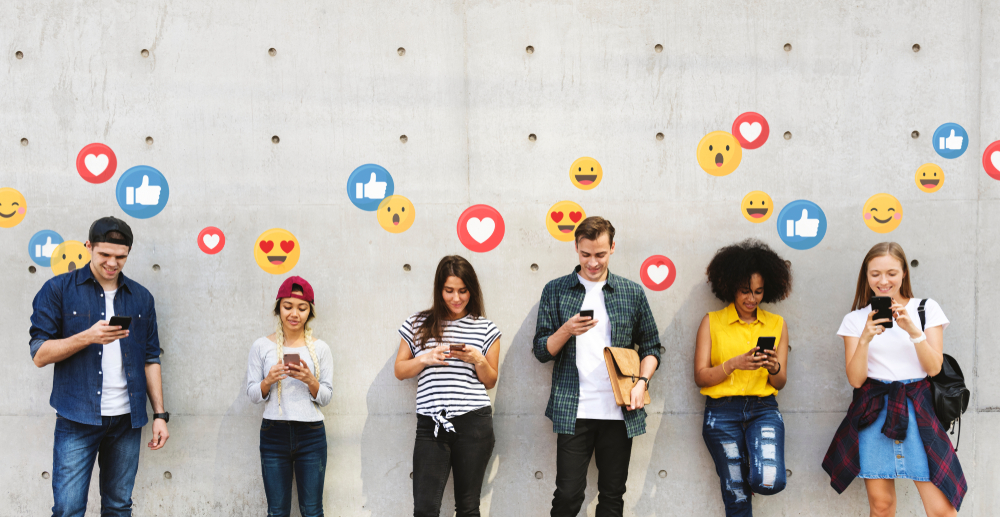Human beings are social creatures that require the companionship of others to thrive in life. More so, the strength of these connections directly impacts an individual’s mental health and emotional wellbeing. Research has found that people who maintain social connections are generally healthier than those who lack a support network. According to the Pew Research Center, social media is nearly ubiquitous in the lives of teens as many rely on social media platforms (e.g., Facebook, Twitter, Snapchat, YouTube, Instagram, etc.) to find and connect with each other. Ironically, for a technology that is designed to bring people closer together, spending too much time engaging with social media can have the opposite effect. A report published by Common Sense Media found that seventy-five percent of American teenagers have social media profiles. Additional statistics indicate 70% of teens ages 13 to 17 check their social media profiles more than once a day. Scientists have discovered teenage social media overuse creates a stimulation pattern mirroring the pattern created by other addictive behaviors. Adverse effects of social media on teenagers could include any combination of the following:
- Sleep deprivation: teenagers forgo sleep to remain active on social media.
- Diminished communication abilities: teenagers become so accustomed to communicating via social media that they lack face-to-face communication skills.
- Jealousy: the constant exposure to peer’s experiences depicted on social media can foster envy and jealousy.
- Fear of missing out (FOMO): teens that are not up to date with the latest social media posts may fear that they will be unable to participate in conversations with peers.
- Insecurity: teenagers fear that if they do not respond to or comment on a friend’s social media posts quickly enough, they will be replaced.
Social media can also have a positive effect on teens. It can help enhance social and emotional development by providing additional opportunities for teenagers to communicate with others and navigate relationships. It can help teenagers learn valuable technical skills. Social media exposes teens to current events and important issues occurring across the world. This can give teens a platform to voice their opinions on global issues as well as enable teenagers to get involved in actively supporting various causes. Nevertheless, the Child Mind Institute asserts that excessive exposure to social media can contribute to unhappiness as it promotes anxiety, depression, and lowered self-esteem in teenagers. Further, experts are concerned that the harmful effects of social media on adolescents will cause problems that will impact this generation into adulthood. Therefore, as is true with everything in life: moderation is key, especially when it comes to teenagers and social media.
For Information and Support
Every family in need of mental health treatment must select a program that will best suit the needs of their family. When one member of a family struggles, it impacts everyone in the family unit. To maximize the benefits of treatment we work closely with the entire family to ensure that everyone is receiving the support they need through these difficult times. Seeking help is never easy, but you are not alone! If you or someone you know needs mental health treatment, we strongly encourage you to reach out for help as quickly as possible. It is not uncommon for many mental health difficulties to impact a person’s life, long term. Pursuing support at the beginning of one’s journey can put the individual in the best position to learn how to manage themselves in a healthy way so they can go on to live happy and fulfilling lives.
OUR KNOWLEDGEABLE ADMISSIONS TEAM CAN BE REACHED 24/7 AT INFO@PACIFICRTC.COM OR CALL: 800-531-5769





